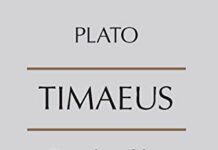
Ebook Info
- Published: 2020
- Number of pages: 307 pages
- Format: PDF
- File Size: 17.08 MB
- Authors: Plato
Description
Theaetetus, the Sophist, and the Statesman are a trilogy of Platonic dialogues that show Socrates formulating his conception of philosophy as he prepares the defense for his trial. Originally published together as The Being of the Beautiful, these translations can be read separately or as a trilogy. Each includes an introduction, extensive notes, and comprehensive commentary that examines the trilogy’s motifs and relationships.”Seth Benardete is one of the very few contemporary classicists who combine the highest philological competence with a subtlety and taste that approximate that of the ancients. At the same time, he as set himself the entirely modern hermeneutical task of uncovering what the ancients preferred to keep veiled, of making explicit what they indicated, and hence…of showing the naked ugliness of artificial beauty.”—Stanley Rose, Graduate Faculty Philosophy JournalSeth Benardete (1930-2001) was professor of classics at New York University. He was the author or translator of many books, most recently The Argument of the Action, Plato’s “Laws,” and Plato’s “Symposium,” all published by the University of Chicago Press.
User’s Reviews
Reviews from Amazon users which were colected at the time this book was published on the website:
⭐Thank you
⭐Plato’s Theaetetus is the first dialogue in a trilogy, (the other two dialogues being the Sophist and the Statesman). The Theaetetus focuses mostly on a conversation between Theaetetus and Socrates about the nature of knowledge. Their discussion goes through a long “immanent critique” of the notion that knowledge is immediate sensory givens, and then looks at the question whether the supplementation of judgment will be sufficient to explain knowledge. This dialogue also contains Socrates famous portrayal of himself as a midwife and much more. It is a quite difficult but essential text for any study of ancient philosophy.This translation in particular is the one I use when I teach this work. It is quite hard to read, so a first-time student who is approaching this on his or her own might be better off using the translation published by Hackett (Levett/Burnyeat translation) or perhaps Cornford’s translation, but the serious student should definitely turn to Benardete’s translation. This translation is the one I favour because it is the best at allowing one to see in English what the Greek original is like. Plato’s own language is very subtle and much of the value–philosophical and otherwise–of the work is to be found in exploration of the complexities of his language (it’s allusions, ambiguities, etc.). Benardete’s translation is hard to read because it aims to capture these complexities of the language rather than to make something that flows simply in English. This translation will allow you to get closer to reading Plato than any of the others that I know of.Benardete also has extremely helpful notes and commentary at the end of his text (which are sometimes rather cryptic, which seems suitable to a Platonic text). As a whole, this book will allow the serious study of Plato an excellent opportunity to *think* about the dialogue. I recommend it very highly.
⭐Not found.
⭐Not found.
⭐Not found.
Keywords
Free Download Plato’s Theaetetus: Part I of The Being of the Beautiful in PDF format
Plato’s Theaetetus: Part I of The Being of the Beautiful PDF Free Download
Download Plato’s Theaetetus: Part I of The Being of the Beautiful 2020 PDF Free
Plato’s Theaetetus: Part I of The Being of the Beautiful 2020 PDF Free Download
Download Plato’s Theaetetus: Part I of The Being of the Beautiful PDF
Free Download Ebook Plato’s Theaetetus: Part I of The Being of the Beautiful




